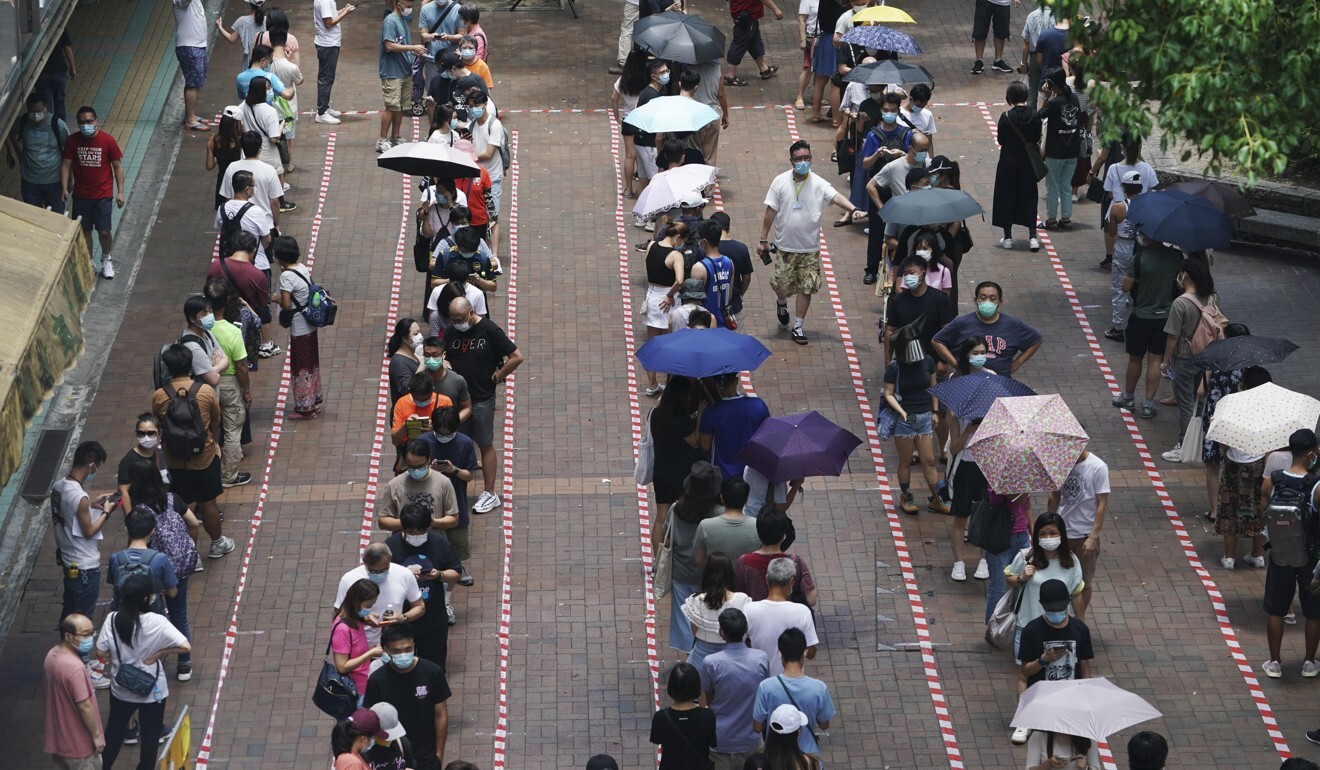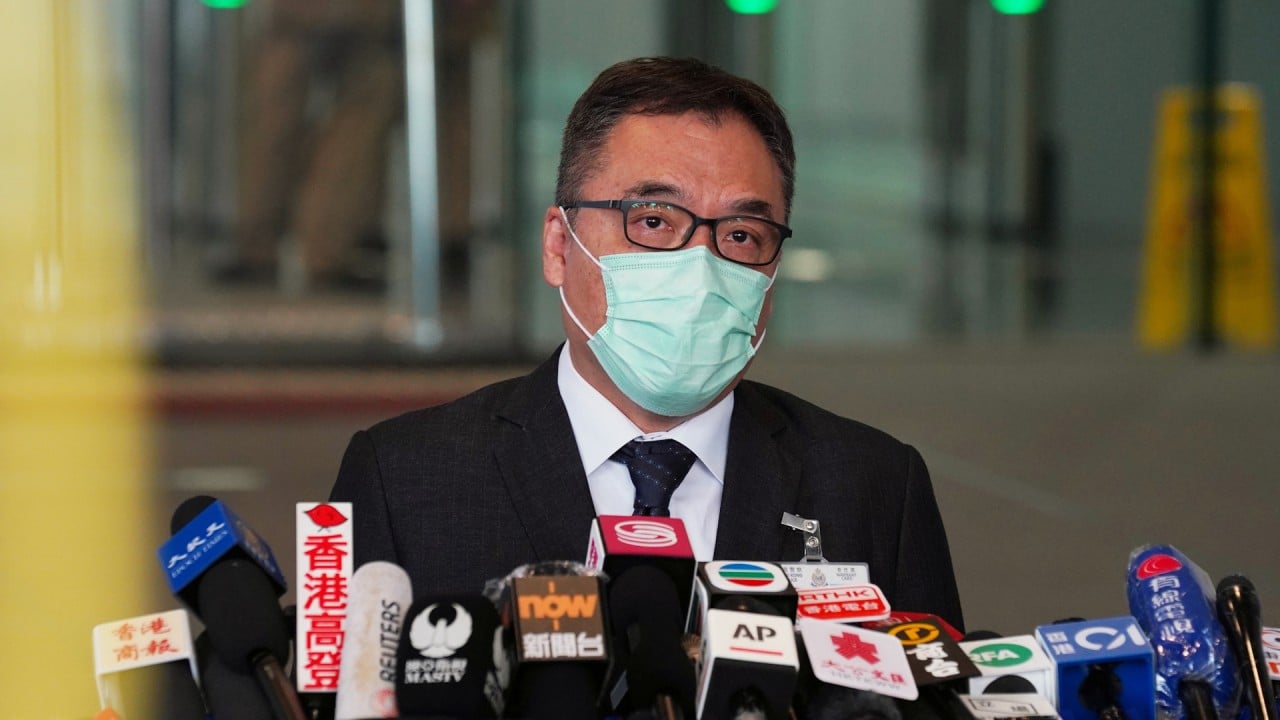
Hong Kong opposition activists disband Power for Democracy group in face of national security law
- Committee members vote on Saturday to immediately cease all operations, day before activists charged with subversion report to police
- Formed in 2002, group organised primary election last year that officials said breached security law
Power for Democracy announced the move on its Facebook page, saying committee members had passed a motion to disband the organisation and cease operations immediately.
“Under the latest development in Hong Kong and the new era of political situation, the coordination work by the Power for Democracy had accomplished its historical mission,” said convenor Andrew Chiu Ka-yin. Chiu, the vice-chairman of Eastern district council.

“In the future, we must, under the Basic Law, the national security law and the framework of ‘one country, two systems’, serve the Hong Kong community via different means, obey the law and safeguard the stability and prosperity of Hong Kong,” the group said.
On Friday, with the exception of three suspects already in jail or custody, 52 suspects out on bail were notified by police that their next reporting day had been moved forward from April, to this Sunday at 2pm. No reason was given for the change.
Some said they were prepared to be detained overnight and brought to court on Monday where they expected to be formally charged with subversion, which carries a maximum sentence of life in prison.
Hong Kong elections to proceed this year but official in dark over format
Power for Democracy was formed in 2002 by activists including Lee Chuek-yan and Albert Ho Chun-yan to strive for democratic development, and worked mainly as a mediating platform for electoral coordination between the opposition parties.
The group organised the primary elections last July in which 600,000 people took part. The goal of the primaries was to select a field of candidates thought most likely to help the opposition score their first-ever majority at Legco, also known as the “35-plus” strategy.
According to its Facebook page, committee members of the Power for Democracy included treasury John Clancey, and former lawmakers Jeremy Tam Man-ho and Andrew Wan Siu-kin. The lawyer and the two former legislators were among those arrested.

02:29
Hong Kong police arrest 53 opposition lawmakers and activists, warn of more arrests
Officials said the “35-plus” plan by opposition politicians to take control of the 70-member Legislative Council breached the national security law, as it was part of a wider strategy to paralyse the government, provoke Beijing into ending the “one country, two systems” policy under which Hong Kong is governed, and trigger international sanctions against China.
Last month, nearly 1,000 police officers conducted raids across the city, detaining 53 people accused of organising or involvement in the pan-democratic camp’s unofficial primary run-off election last July, while activist Joshua Wong Chi-fung and Tam Tak-chi were arrested on the subversion charge while already in jail.

